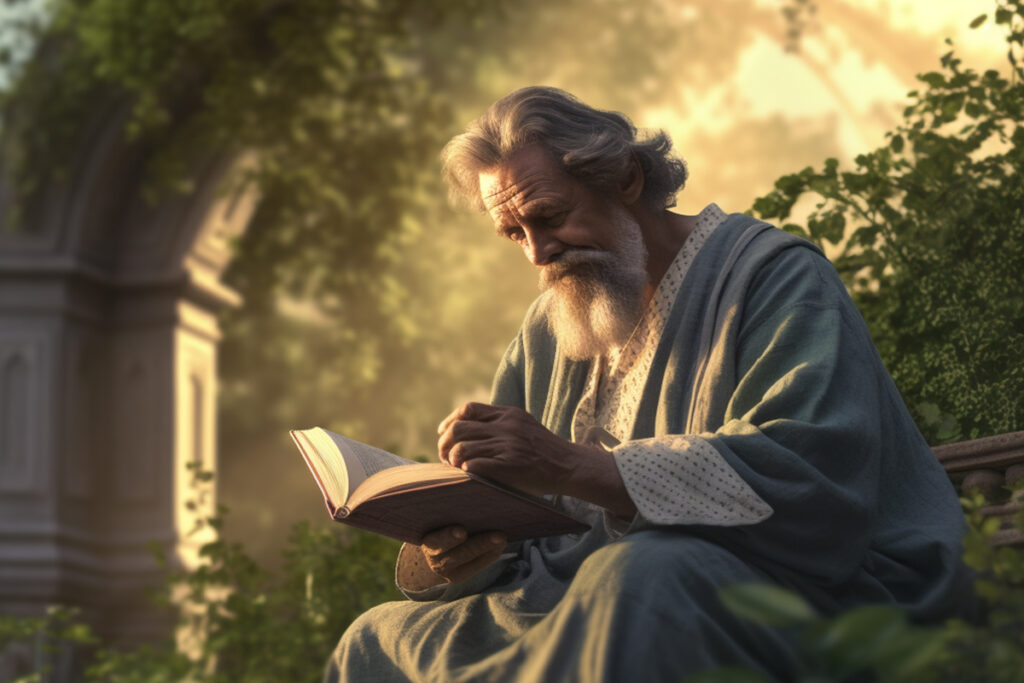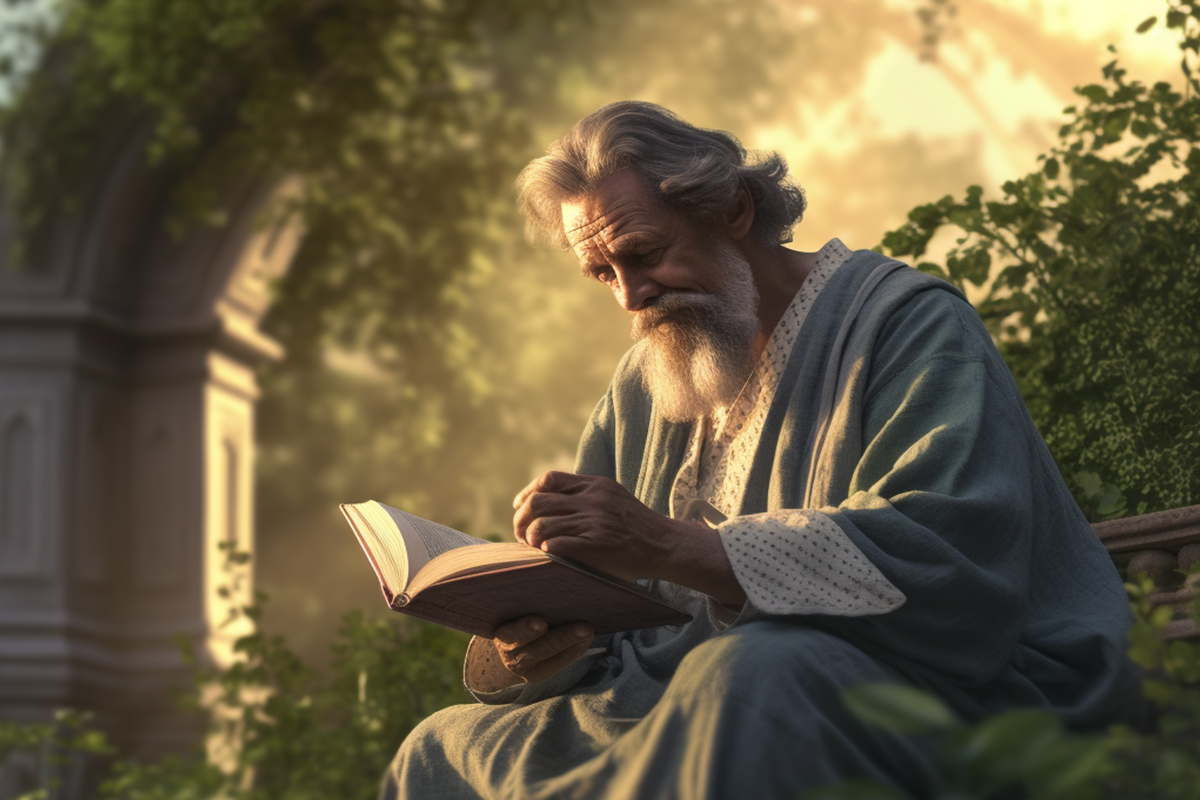Are you looking to expand your horizons and dive into the world of philosophy this year? You’re in luck! We’ve compiled a list of the 10 best philosophy books to read. Philosophy is more than just an academic subject – it’s a way of life. Reading philosophy books can help us gain a deeper understanding of ourselves and the world around us. So why not start your philosophical journey today?

Why Read Philosophy Books?
Philosophy books provide us with a perspective on life that is often hard to come by. They inspire us to ask questions about the world and our place in it. Philosophy helps us to develop critical thinking skills, gain insights that can challenge our beliefs, and sharpen our powers of reasoning.
Furthermore, philosophy books can provide us with a sense of intellectual fulfillment and personal growth. By engaging with complex ideas and grappling with difficult questions, we can expand our minds and broaden our perspectives.
The Importance of Philosophy in Modern Society
Philosophy has a crucial role to play in contemporary society. It helps us to understand and analyze complex issues, such as ethics, justice, and morality. In a world where these issues are increasingly important, philosophy can provide us with the tools to engage in meaningful discussions and debates about them in a rational and thoughtful way.
Moreover, philosophy can help us to navigate the challenges of modern life. By examining the nature of existence, the meaning of life, and the purpose of human existence, philosophy can provide us with a framework for making sense of the world and our place in it.
How Philosophy Can Improve Critical Thinking Skills
Philosophy requires us to think deeply and critically about our beliefs, assumptions, and values. Reading philosophy books can help us to develop our analytical and critical thinking skills, which are essential for success in any field.
Furthermore, philosophy can teach us to approach problems from multiple perspectives and to consider alternative viewpoints. By learning to think critically and creatively, we can become more effective problem-solvers and decision-makers.
In conclusion, reading philosophy books can provide us with a wealth of benefits, from intellectual fulfillment and personal growth to improved critical thinking skills and a better understanding of complex issues. So why not pick up a philosophy book today and see where it takes you?
The Top Philosophy Books
Philosophy is a subject that has fascinated thinkers for centuries. It is a discipline that seeks to answer some of the most fundamental questions about existence, knowledge, truth, and morality. If you’re looking to expand your knowledge and understanding of philosophy, then you’re in luck. In this article, we’ll be discussing the top philosophy books to read. These books have been carefully selected for their relevance, insight, and impact on the field of philosophy.
Without further ado, here are our top 10 picks for philosophy books to read:
“Meditations” by Marcus Aurelius
This book is a classic of Stoic philosophy and is considered one of the most influential works of ancient philosophy. It’s a series of personal reflections that provide insight into the mind of one of Rome’s greatest emperors. In this book, Aurelius reflects on the nature of existence, the importance of virtue, and the role of reason in our lives. It’s a must-read for anyone interested in Stoicism or ancient philosophy.
One of the most striking things about “Meditations” is the way in which Aurelius emphasizes the importance of living in the present moment. He argues that we should not waste our time worrying about the past or the future, but should instead focus on the present and strive to live a virtuous life. This is a message that is still relevant today, and one that we can all benefit from.
“The Republic” by Plato
This book is one of the foundational works of Western philosophy and is a must-read for anyone interested in political theory. It explores the nature of justice, the role of the state, and the ideal society. In “The Republic“, Plato presents a vision of an ideal society in which individuals are organized into classes based on their natural abilities and virtues. He argues that this is the only way to achieve a just and harmonious society.
One of the most interesting things about “The Republic” is the way in which it challenges our assumptions about democracy. Plato argues that democracy is inherently flawed because it allows the uneducated and unvirtuous to have a say in the running of the state. Instead, he advocates for a system in which only the most virtuous and knowledgeable individuals are allowed to govern.
“Beyond Good and Evil” by Friedrich Nietzsche
This book is a provocative and challenging work that critiques traditional morality and offers a new framework for understanding ethics. It’s a must-read for anyone looking to broaden their understanding of ethical theory. In “Beyond Good and Evil“, Nietzsche argues that traditional morality is a form of herd mentality that stifles individual creativity and freedom. He advocates for a new morality that is based on the will to power and the pursuit of excellence.
One of the most controversial aspects of “Beyond Good and Evil” is Nietzsche’s critique of Christianity. He argues that Christianity is a slave morality that glorifies weakness and suffering, and that it has had a detrimental effect on Western civilization. This is a challenging book that will force you to question your assumptions about morality and ethics.
“The Second Sex” by Simone de Beauvoir
This book is a feminist classic and is an essential read for anyone interested in gender theory. It argues that women are not a “second sex” but are equal to men in every way. In “The Second Sex“, de Beauvoir explores the social, cultural, and psychological factors that have led to the oppression of women throughout histor
One of the most important contributions of “The Second Sex” is its critique of the idea of “femininity”. De Beauvoir argues that femininity is a social construct that has been used to justify the subordination of women. She advocates for a new understanding of gender that is based on individual choice and freedom.
“The Ethics of Authenticity” by Charles Taylor
This book explores the idea of authenticity and how it relates to our sense of self and our relationships with others. It’s a thought-provoking and engaging work that challenges us to think deeply about who we are and what we value. In “The Ethics of Authenticity“, Taylor argues that authenticity is a fundamental human need, and that we should strive to live our lives in accordance with our own values and beliefs.
One of the most interesting things about “The Ethics of Authenticity” is the way in which it critiques the idea of relativism. Taylor argues that while we should respect the beliefs and values of others, we should also be willing to make moral judgments and stand up for what we believe in. This is a book that will inspire you to think deeply about your own values and how you can live a more authentic life.
“The Human Condition” by Hannah Arendt
This book explores the nature of human existence and the meaning of life. It’s a challenging work that confronts us with some of the most fundamental questions we can ask about our lives. In “The Human Condition“, Arendt argues that human beings are defined by their ability to act and to create meaning in the world.
One of the most interesting things about “The Human Condition” is the way in which it critiques modernity. Arendt argues that modern society is characterized by a loss of meaning and a sense of alienation. She advocates for a return to the public realm, where individuals can come together to create meaning and to act in the world.
“The Structure of Scientific Revolutions” by Thomas Kuhn
This book provides a groundbreaking theory of scientific progress and revolution. It challenges our assumptions about how scientific knowledge is acquired and reshapes our understanding of how science works. In “The Structure of Scientific Revolutions“, Kuhn argues that scientific progress is not a linear process, but is instead characterized by periods of normal science punctuated by revolutionary breakthroughs.
One of the most interesting things about “The Structure of Scientific Revolutions” is the way in which it critiques the idea of scientific objectivity. Kuhn argues that scientific knowledge is always shaped by the social and cultural context in which it is produced, and that it is therefore always subjective to some degree. This is a book that will challenge your assumptions about science and the nature of knowledge.
“The Denial of Death” by Ernest Becker
This book is a profound exploration of the human struggle with mortality. It argues that much of human behavior is driven by our fear of death and our attempts to come to terms with our own mortality. In “The Denial of Death“, Becker explores the ways in which we create meaning in our lives in order to cope with the inevitability of death.
One of the most interesting things about “The Denial of Death” is the way in which it critiques the idea of heroism. Becker argues that heroism is a way of denying our own mortality, and that it is ultimately futile. He advocates for a more realistic and honest approach to life, in which we accept our mortality and strive to create meaning in the face of it.
“The Genealogy of Morals” by Friedrich Nietzsche
This book is another essential work by Nietzsche that explores the origins and evolution of moral systems. It challenges us to rethink our assumptions about right and wrong and to consider what it means to live a good life. In “The Genealogy of Morals“, Nietzsche argues that traditional morality is a form of slave morality that is designed to keep the weak in check.
One of the most interesting things about “The Genealogy of Morals” is the way in which it critiques the idea of guilt. Nietzsche argues that guilt is a form of self-punishment that is designed to keep us in line with traditional morality. He advocates for a new morality that is based on the will to power and the pursuit of excellence.
“The Problems of Philosophy” by Bertrand Russell
This book is a classic introduction to philosophy that provides a clear and accessible overview of some of the most important philosophical problems. It’s an excellent starting point for anyone new to philosophy. In “The Problems of Philosophy“, Russell explores questions such as the nature of reality, the limits of knowledge, and the existence of God.
One of the most interesting things about “The Problems of Philosophy” is the way in which it challenges our assumptions about the world. Russell argues that many of the things we take for granted are actually quite mysterious when we stop to think about them. This is a book that will inspire you to ask questions and to think critically about the world around you.
How to Choose the Right Philosophy Book for You
So now that you have our top 10 picks for philosophy books, how do you choose the right one for you? Here are a few things to consider:
Determine Your Interests and Goals
What topics interest you the most? Do you want to focus on ethics, politics, or metaphysics? Determining what you want to learn more about can help you choose a book that is a good fit for you.
Consider Your Current Knowledge of Philosophy
If you’re new to philosophy, you may want to start with an introductory book that provides a broad overview of the field. If you have some background in philosophy, you may be ready for a more specialized book on a particular topic.
Seek Recommendations from Friends and Experts
Don’t be afraid to ask for recommendations from friends or experts in the field. You may also want to consult online reviews to see what others have to say about a particular book.
So there you have it – our top 10 picks for philosophy books to read. Whether you’re a seasoned philosopher or just starting out, reading these books is sure to broaden your horizons and deepen your understanding of the world around you.
FAQs
- The 11 Best Books About Cats You Should Read - January 16, 2024
- The 9 Best Books on Building Confidence - January 16, 2024
- Discover the 10 Best Books on the Brain - January 16, 2024









